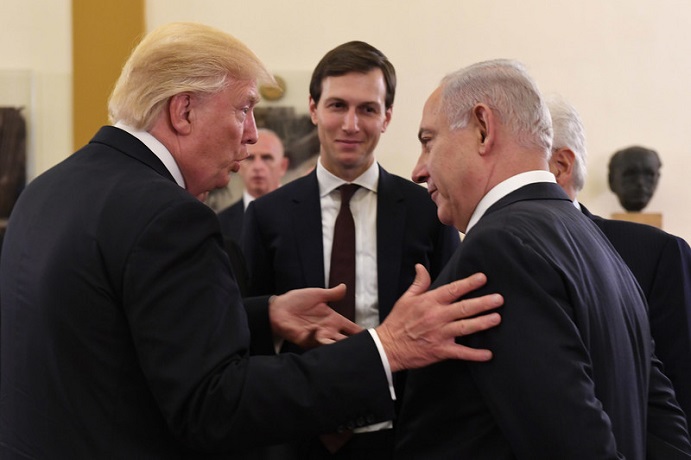The Electronic Intifada / June 21, 2019
Expectations were already at rock bottom for US presidential adviser and son-in-law Jared Kushner’s Bahrain “workshop” intended to kick-start the economic aspects of the Trump administration’s “Deal of the Century.”
But they managed to sink even lower after the draft program of the meeting, set for 25-26 June, leaked online.
Palestinians, including the Palestinian Authority and private business persons invited by the Americans, were already boycotting the conference and urging others to do the same.
Palestinians see the gathering as part of the US administration’s plan to liquidate their inalienable rights, including rights to their land, and compensate them with financial crumbs – a new iteration of the strategy of “economic peace” long pushed by the Israelis.
The Palestinian Return Centre, a London-based advocacy organization, summed up the feeling, describing the Bahrain workshop as “an affront to all Palestinians [that] is destined to fail given its misguided approach of imposing on Palestinians to surrender their rights for a limited economic boost.”
Even the European Union, normally eager to pander to Israel and Washington, was planning only to send a low-level “technical” representative to the meeting.
[Russia and China will also be absent]Just one Palestinian, Ashraf Jabari, who is universally shunned in his home city of Hebron for his collaboration with Israeli settler groups, is listed on the draft program.
Indeed Jabari is so reviled in his community that his own family has publicly disowned him.
Jordan, faced with solid internal opposition, has yet to confirm its attendance.
The Americans, encountering mounting difficulties in convincing any credible parties to attend the conference, had to announce that Israel would not be represented by an official delegation.
However the US did issue an invitation to Yoav Mordechai, the general who oversaw the siege of Gaza, including sentencing dozens of cancer patients to death by denying them permission to leave the totally besieged, occupied territory for treatment.
So what’s left between the scheduled “networking breakfasts” and “cocktail receptions”?
As many commentators pointed out, not very much. There are a few panels, with such optimistic titles as “The Time is Now: Building a Coalition for Middle East Prosperity” and “Unleashing Economic Potential.”
Many advertised speakers are unknown business officials with no connection to Palestine or its people’s struggle for liberation.
Perhaps the highlight is a 15-minute “conversation” between Kushner and Tony Blair.
The former British prime minister will undoubtedly take advantage of the “networking” opportunities to benefit his business as a richly paid lobbyist for Gulf regimes.
Kushner’s debacle is a reminder that while American schemes for the region invariably sow devastation, chaos and suffering on an incomprehensible scale, they almost never go to plan.
If they did, post-invasion Iraq would now be a docile American colony and military base where US corporations could reap profits in a deregulated flat-tax regime dreamed up by right-wing Washington think tanks.
Perhaps the only solid achievement coming out of Kushner’s flop is another notch in Israel’s belt in terms of ongoing normalization of its relations with Arab states.
It was already a significant win for Israel that Bahrain had agreed to host the conference even when it was expected that the Israeli government would formally attend.
In an unprecedented move, Bahrain is allowing Israeli media organizations into the country to cover the conference.
That is probably bigger news than anything that will happen at the workshop itself – if it even happens, given the dangerously escalating US efforts to provoke a war with Iran.
Ali Abunimah is co-founder of The Electronic Intifada and author of The Battle for Justice in Palestine, now out from Haymarket Books.













